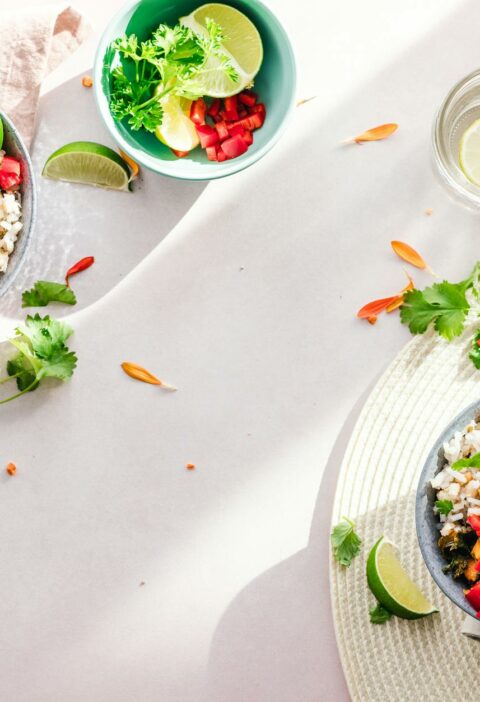Mediterranean Diet for Beginners: Easy Tips and Tricks
Embarking on a new diet can feel daunting, but the Mediterranean diet, renowned for its health benefits, doesn’t have to be. This dietary approach, inspired by the traditional eating habits of people around the Mediterranean Sea, emphasizes whole, unprocessed foods and offers a delicious and sustainable path to better health. This article will guide beginners through the essential elements of the Mediterranean diet, providing practical tips and tricks to seamlessly incorporate it into your daily life. We’ll explore the key food groups, offer simple recipe ideas, and address common challenges, ensuring a smooth and enjoyable transition to this healthy eating style. Get ready to discover how simple swaps and mindful choices can lead to significant improvements in your overall well-being. We’ll cover everything from understanding the core principles to navigating grocery shopping and meal preparation, making the Mediterranean diet accessible and appealing to everyone.
embracing the core principles
The Mediterranean diet is more than just a list of foods; it’s a lifestyle. At its heart are plenty of fruits and vegetables, whole grains, legumes, nuts, and seeds. Olive oil is the primary fat source, replacing butter and other less healthy options. Lean protein sources like fish, poultry, and beans are favored over red meat, which is consumed sparingly. Dairy, mostly in the form of yogurt and cheese, is included in moderation. Finally, regular physical activity and social connection are crucial components of this holistic approach. Don’t aim for perfection; focus on making gradual, sustainable changes.
shopping and stocking your kitchen
Successfully transitioning to the Mediterranean diet starts with smart shopping. Fill your cart with colorful produce: broccoli, spinach, bell peppers, tomatoes, and artichokes are excellent choices. Stock up on whole grains like quinoa, brown rice, and whole-wheat pasta. Choose canned tuna or salmon packed in water, and don’t forget legumes like chickpeas, lentils, and kidney beans. Olive oil should be your go-to cooking oil. Nuts like almonds and walnuts, and seeds like sunflower and flax seeds, add healthy fats and fiber. Remember to check labels for added sugars and processed ingredients.
Here’s a helpful shopping list:
- Fruits (apples, oranges, berries, grapes)
- Vegetables (broccoli, spinach, peppers, tomatoes)
- Whole grains (quinoa, brown rice, whole-wheat pasta)
- Legumes (chickpeas, lentils, kidney beans)
- Olive oil
- Nuts and seeds (almonds, walnuts, sunflower seeds)
- Fish (tuna, salmon)
- Poultry (chicken, turkey)
easy recipes and meal planning
The Mediterranean diet doesn’t require complex cooking. Simple recipes can be incredibly flavorful and satisfying. A basic salad with olive oil and lemon juice, grilled fish with roasted vegetables, or a lentil soup are all quick and healthy options. Meal prepping can significantly simplify your week. Prepare large batches of grains, roasted vegetables, or legumes on the weekend to use throughout the week in various meals. Consider incorporating these elements into your weekly meal plan:
| Day | Breakfast | Lunch | Dinner |
|---|---|---|---|
| Monday | Yogurt with berries | Salad with chickpeas and feta | Grilled chicken with roasted vegetables |
| Tuesday | Whole-wheat toast with avocado | Lentil soup | Baked salmon with quinoa |
overcoming challenges and staying motivated
Switching to a new dietary pattern takes time and effort. It’s normal to face challenges. One common hurdle is finding Mediterranean-friendly options when eating out. Look for restaurants offering grilled fish, salads with olive oil-based dressings, and vegetable-centric dishes. Another challenge is managing cravings for processed foods. Gradually reduce your intake of these foods, focusing on the positive changes you’re experiencing, such as increased energy levels and improved digestion. Remember to celebrate small victories and don’t get discouraged by occasional slip-ups. Maintaining a supportive network of friends or family who share your dietary goals can significantly increase your chances of success.
conclusion
Adopting the Mediterranean diet is a journey, not a race. By focusing on the core principles – emphasizing whole, unprocessed foods, utilizing olive oil as your primary fat source, and incorporating plenty of fruits, vegetables, and lean protein – you can pave the way towards a healthier and more fulfilling lifestyle. This article has provided practical tips for shopping, meal planning, and overcoming challenges. Remember that the key is consistency and finding a sustainable approach that fits your individual needs and preferences. Don’t be afraid to experiment with new recipes, explore different flavors, and enjoy the delicious and healthy journey that the Mediterranean diet offers. With commitment and a focus on gradual change, you’ll reap the many health benefits that this well-regarded eating pattern provides. The Mediterranean diet isn’t just a diet; it’s a path to a healthier, happier you.
Image by: Ella Olsson
https://www.pexels.com/@ella-olsson-572949


